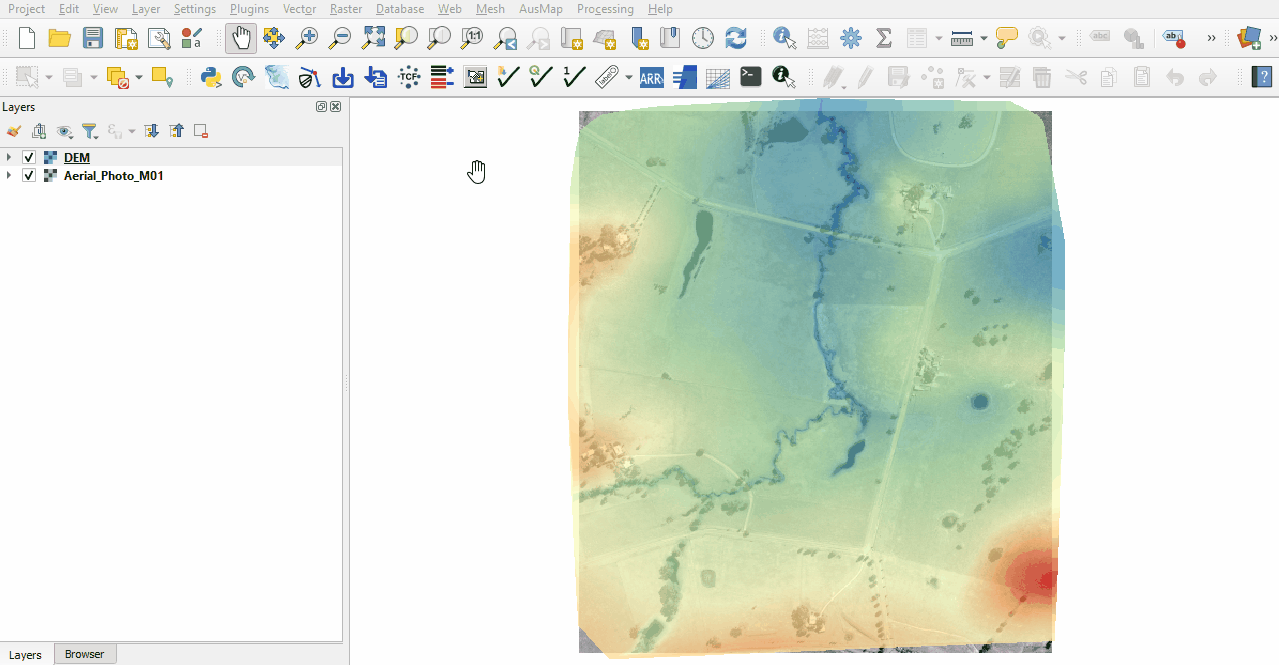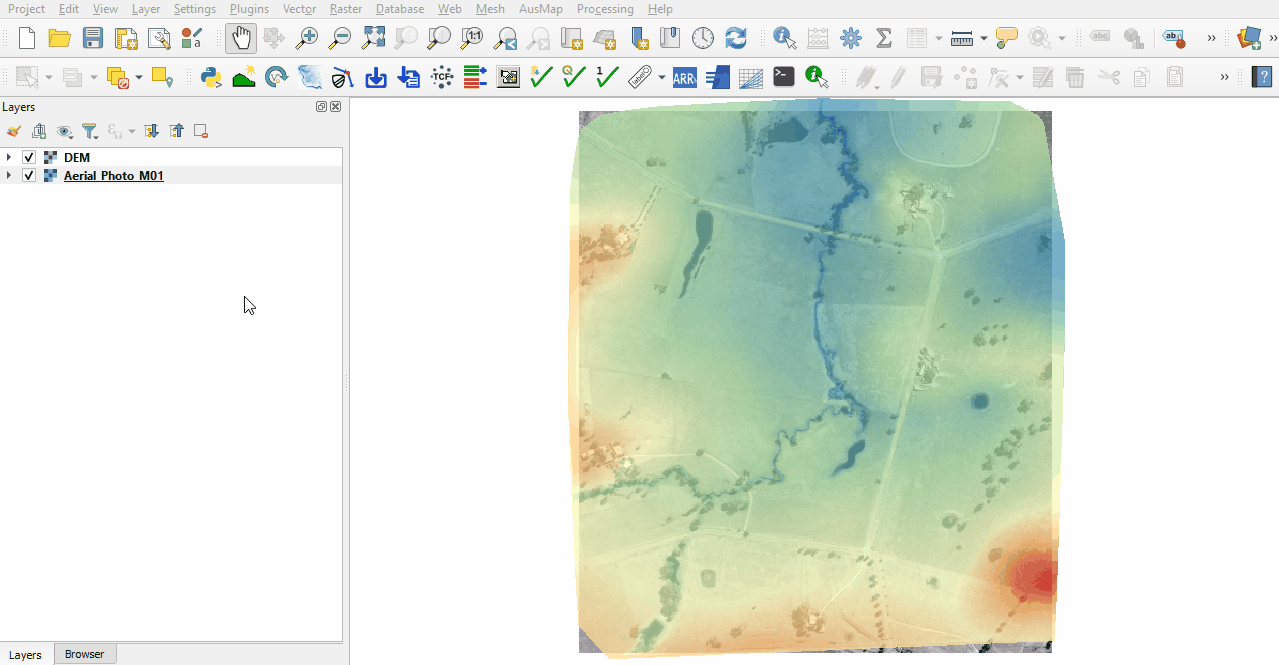QGIS Profile Tool: Difference between revisions
Jump to navigation
Jump to search
Content deleted Content added
No edit summary |
|||
| Line 10: | Line 10: | ||
<li>It is recommended to close all QGIS workspaces and re-open the app. |
<li>It is recommended to close all QGIS workspaces and re-open the app. |
||
<li>Right click on the tool bar and ensure that 'Plugins Toolbar' is turned on.<br> |
<li>Right click on the tool bar and ensure that 'Plugins Toolbar' is turned on.<br> |
||
<br> |
|||
[[File:Animation ProfileTool 0102.gif]]<br> |
[[File:Animation ProfileTool 0102.gif]]<br> |
||
<br> |
<br> |
||
</ol> |
</ol> |
||
== Use == |
== Use == |
||
Revision as of 11:33, 6 January 2022
Profile Tool
In QGIS the grid elevation profile can be viewed using the "Profile Tool" plugin.
Installation
To install the Profile Tool:
- Go to Plugins > Manage and Install Plugins.
- Type 'Profile Tool' in the search bar.
- Click Install Plugin.
- It is recommended to close all QGIS workspaces and re-open the app.
- Right click on the tool bar and ensure that 'Plugins Toolbar' is turned on.

Use
- Open the Profile Tool by clicking on the 'Terrain Profile' icon.
- Select the raster from the layer control panel and click 'Add Layer' in the Profile Tool. Multiple layers may be added.
- There are many selection options, the below example uses a temporary polyline. Finish the line by double clicking.

| Up |
|---|